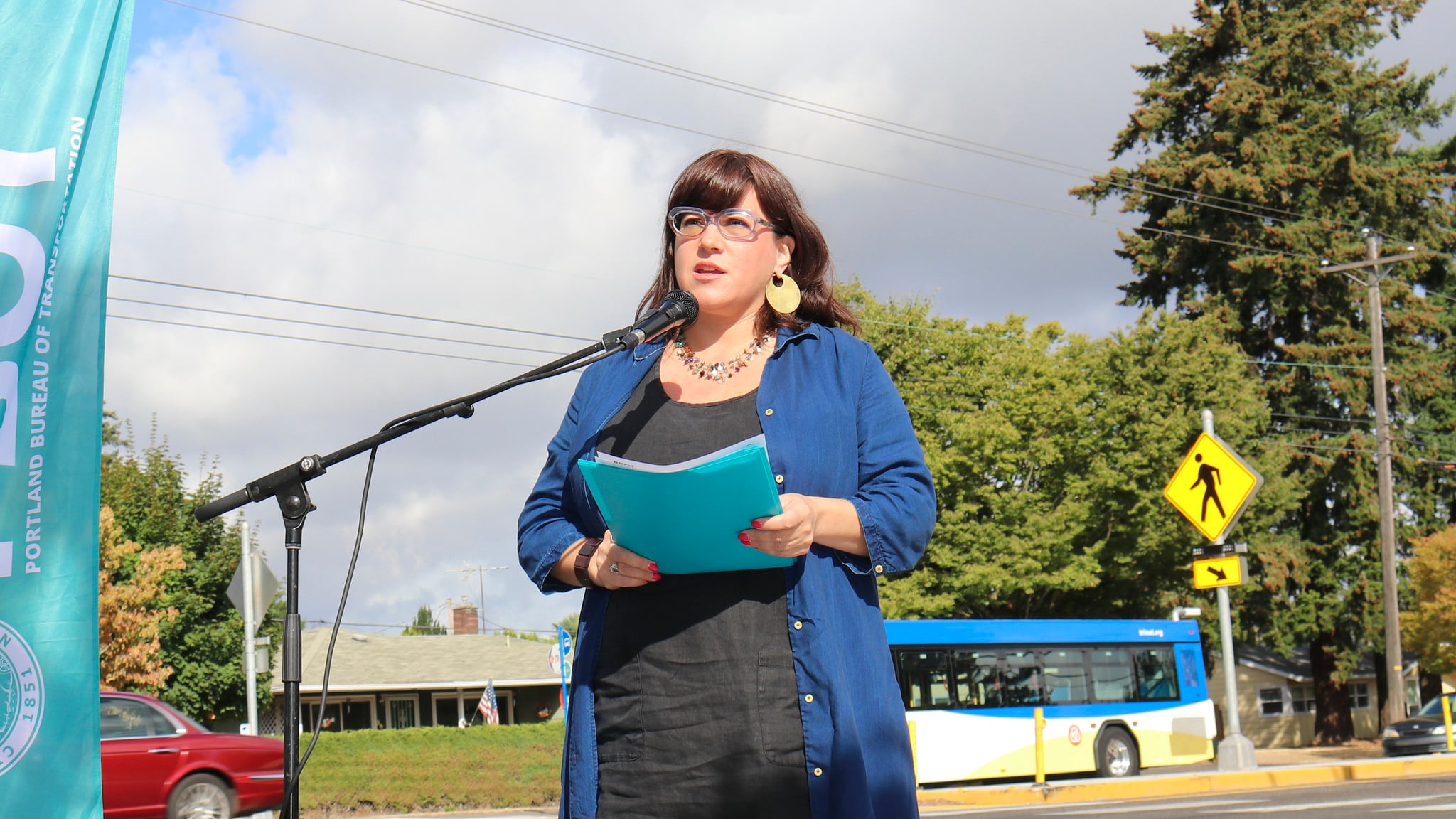This summer, City Commissioner Chloe Eudaly proposed a new rental policy few cities have ever tried. She wants to place new requirements on how landlords screen tenants' criminal and financial histories.
It's probably no surprise Eudaly's idea has drawn a powerful backlash from landlords. The landlord association Multifamily NW has blanketed the city with postcards headlined "Sex Offenders, Stalkers and Felons Could Be Your Neighbor!"—an alarmist criticism of Eudaly's proposal.
But what could doom Eudaly's reform is which landlords are opposed. A group of the city's affordable housing nonprofits are also questioning the restrictions on tenant screenings.
In a Sept. 14 letter to the city's commissioners, eight of the city's affordable housing developers, including some of the largest, expressed opposition to the current draft.
"We are very worried that this set of criteria will have a significant adverse impact on the work we do," write the affordable housing developers.
Affordable housing nonprofits build and manage publicly funded homes for low-income residents who need government subsidies to keep a roof over their head.
Because they don't have the profit margins of the private sector, and there's pressure to keep the cost of housing low, these nonprofits are alarmed about how the new policies could affect their bottom line—and impact other vulnerable tenants who can't afford to pack up and leave.
The nonprofits' central objection is the same issue that alarms private-sector landlords: limiting criminal history checks.
"The criminal history standards are too permissive," the letter states. "Our primary concern is for the safety of other tenants and existing communities. We are mission-based and work to help people overcome barriers to housing, including people with extensive criminal backgrounds. However, the proposed policy removes thresholds for certain convictions that could negatively impact existing vulnerable residents."
Eudaly was elected in part by pledging to create policies to help tenants live more securely.
With Mayor Ted Wheeler's support, she quickly passed a policy requiring landlords to pay moving costs in most cases when they evict a tenant without cause or increase rents by more than 10 percent.
Her next priority: regulating how landlords allow tenants into apartments as closely as how they push them out.
Since taking office, Eudaly has been working on a way to regulate how much landlords can charge for security deposits and how closely they can screen the criminal history of applicants.
The proposed security deposit policy limits such deposits to half a month's rent in some cases. That proposal is opposed by landlords, but they don't hate it as much as the limit on screening criteria.
That part of the policy mandates that landlords can't automatically reject tenants for certain crimes.
Landlords would have to justify rejecting applicants convicted of misdemeanors or felonies that involved sentences of three years or less, so long as the convictions are more than three years old.
Landlords would also be required to take the first qualified applicant and offer applicants a specific business reason for rejections.
The nonprofit landlords are quick to point out they are not making common cause with Multifamily NW's scare tactics. "We don't share the same sort of viewpoint as communicated through that postcard," says Daniel Valliere, executive director of Reach Community Development Inc., one of the nonprofits who objected to the policy.
But the nonprofits' opposition could kill the proposal. Eudaly has delayed a City Council vote on it from September to October. And the outcry from nonprofits could cost her a pivotal vote on the council: Commissioner Nick Fish. Fish has long been closely aligned with affordable housing developers.
"He's been clear that the feedback from affordable housing providers is going to be really key in helping him evaluate the proposal," says Sonia Schmanski, Fish's chief of staff. "They share our goal of giving more people more access to places to live, which is why their feedback is especially meaningful."
Eudaly says she's listening to the nonprofits' objections.
"We are absolutely open to this conversation, but we need a policy that's based on data not on widely held myth or emotional reactions to certain types of crimes," says Eudaly. "We need to take a closer look at our criminal history standards and be able to demonstrate our policies are based on fact and not fear."
Her office has scheduled a meeting for next week with affordable housing developers.
Tenant groups working in support of the policy say the feedback from affordable housing developers will help make the policy better, not derail it.
"Groundbreaking policy like this will require innovation and refinement, and that is why we are glad housing providers are weighing in," says Katrina Holland, executive director of the Community Alliance of Tenants. "Members consistently tell us they are being denied housing based on the subjective screening criteria and excessive security deposits allowed under current law. The policy under development is necessary to stop discrimination."

